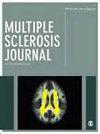意大利多中心队列中孕期接触富马酸二甲酯的多发性硬化症妇女的母体和胎儿结局。
IF 5
2区 医学
Q1 CLINICAL NEUROLOGY
引用次数: 0
摘要
背景有关怀孕期间富马酸二甲酯(DMF)对多发性硬化症(MS)女性患者的影响的证据非常有限。记录受孕前 12 个月、妊娠期间和产后 12 个月的疾病活动情况,并探索重新激活的预测因素。结果该研究分析了 137 名妇女(平均年龄为 32.9 ± 4.7 岁)的 137 例妊娠(12 例妊娠失败,125 例活产),这些妇女在受孕后 4.9(3.7-5.7)周的中位数(四分位间距(IQR))间隔内停用了 DMF。与受孕前(ARR = 0.21 (95% CI: 0.14-0.30))和产后(ARR = 0.22 (95% CI: 0.15-0.32),P = 0.006)相比,活产妊娠的年复发率(ARR)在孕期显著下降(ARR = 0.07,95% 置信区间(CI):0.03-0.14,P = 0.021)。首次复发的中位时间(TTFR)为 3.16 个月(IQR:1:87-5.42)。较高的孕前复发次数(危险比 (HR) = 2.33,95% CI:1.08-5.02)和扩展残疾状态量表(EDSS;HR = 1.81,95% CI:1.17-2.74)与较短的 TTFR 相关,而恢复治疗与较长的 TTFR 相关(HR = 0.29,95% CI:0.11-0.74)。结论停用DMF不会增加孕期复发风险。早期重新开始治疗可预防产后复发。早期接触DMF不会对胎儿产生不良影响。本文章由计算机程序翻译,如有差异,请以英文原文为准。
Maternal and fetal outcomes in an Italian multicentric cohort of women with multiple sclerosis exposed to dimethyl fumarate during pregnancy.
BACKGROUND
Evidence on the impact of dimethyl fumarate (DMF) during pregnancy in women with multiple sclerosis (MS) is limited.
OBJECTIVES
To investigate disease activity and pregnancy outcomes in a retrospective cohort of women exposed to DMF in early pregnancy.
METHODS
Women discontinuing DMF after pregnancy confirmation were identified from 29 Italian MS Centers. Disease activity 12 months before conception, during pregnancy, and 12 months postpartum were recorded, exploring reactivation predictors. Pregnancy and fetal outcomes were assessed.
RESULTS
The study analyzed 137 pregnancies (12 pregnancy losses, 125 live births) from 137 women (mean age 32.9 ± 4.7 years), discontinuing DMF within a median (interquartile range (IQR)) interval of 4.9 (3.7-5.7) weeks from conception. In live birth pregnancies, annualized relapse rate (ARR) significantly decreased during pregnancy (ARR = 0.07, 95% confidence interval (CI): 0.03-0.14, p = 0.021) compared to pre-conception (ARR = 0.21 (95% CI: 0.14-0.30)) and increased postpartum ((ARR = 0.22 (95% CI: 0.15-0.32), p = 0.006). Median time to first relapse (TTFR) was 3.16 (IQR: 1:87-5.42) months. Higher pre-conception relapse number (hazard ratio (HR) = 2.33, 95% CI: 1.08-5.02) and Expanded Disability Status Scale (EDSS; HR = 1.81, 95% CI: 1.17-2.74) were associated with shorter TTFR, while treatment resumption with longer TTFR (HR = 0.29, 95% CI: 0.11-0.74). Fetal outcomes were unaffected by DMF exposure.
CONCLUSION
DMF discontinuation does not increase relapse risk during pregnancy. Early therapy restart prevents postpartum relapses. Early DMF exposure shows no adverse fetal outcomes.
求助全文
通过发布文献求助,成功后即可免费获取论文全文。
去求助
来源期刊

Multiple Sclerosis Journal
医学-临床神经学
CiteScore
10.90
自引率
6.90%
发文量
186
审稿时长
3-8 weeks
期刊介绍:
Multiple Sclerosis Journal is a peer-reviewed international journal that focuses on all aspects of multiple sclerosis, neuromyelitis optica and other related autoimmune diseases of the central nervous system.
The journal for your research in the following areas:
* __Biologic basis:__ pathology, myelin biology, pathophysiology of the blood/brain barrier, axo-glial pathobiology, remyelination, virology and microbiome, immunology, proteomics
* __Epidemology and genetics:__ genetics epigenetics, epidemiology
* __Clinical and Neuroimaging:__ clinical neurology, biomarkers, neuroimaging and clinical outcome measures
* __Therapeutics and rehabilitation:__ therapeutics, rehabilitation, psychology, neuroplasticity, neuroprotection, and systematic management
Print ISSN: 1352-4585
 求助内容:
求助内容: 应助结果提醒方式:
应助结果提醒方式:


